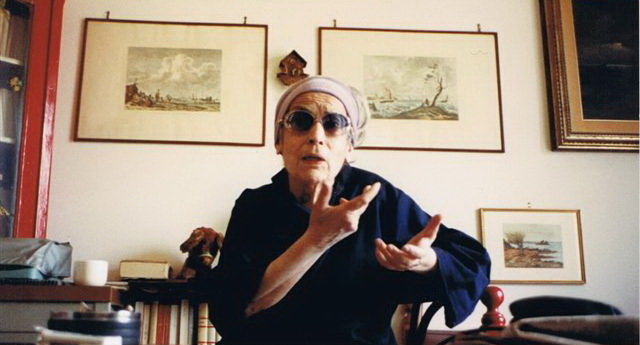Anna Maria Ortese in New York
Panel discussion
This panel on Anna Maria Ortese (Rome 1914–Rapallo 1998) represents a significant and compelling event, as this unique and distinguished Italian woman and writer remains largely unknown to the American readers. Three speakers will explore different aspects of Ortese’s works, offering fresh interpretive perspectives that contribute to the ongoing reassessment of women’s culture and literature in the twentieth century.
The event will feature the following presentations:
• Prof. Andrea Baldi, Rutgers University (New Brunswick, USA): “I Didn’t Want to See Too Much”: Anna Maria Ortese’s Unsettling Reportages.
• Prof. Lilia Bellucci, University of Rome “La Sapienza” (Italy): Two Women Envisioning Tagore’s India: The Unpublished Correspondence of Anna Maria Ortese and Adriana Capocci Belmonte.
• Prof. Monica Farnetti, University of Sassari (Italy): The Human and Its Other: Anna Maria Ortese’s Practices of Companionship.
Ortese’s novels, short stories, poetry, reportages, and political writings trace a deeply personal journey, offering a penetrating analysis of contemporary society and anticipating critical issues such as ecological concerns. Many of her works received prestigious awards: Il mare non bagna Napoli (Viareggio Prize, 1953), Poveri e semplici (Strega Prize, 1967), Il treno russo (Fiuggi Prize, 1986), In sonno e in veglia (Procida-Elsa Morante Prize, 1998), and Il cardillo addolorato (Prix du Meilleur Livre Étranger, Paris, 1998).
In 1967, Ortese became the third woman to win the Strega Prize, and in 1953 she received the Saint-Vincent Prize for journalism. As a correspondent for L’Europeo, in 1955 she was the first woman to follow and report on the Giro d’Italia, the famous bicycle race.
A defining feature of Ortese’s narratives—rooted in her travels through various Italian cities and her encounters with landscapes of marginalization—is a form of estranged realism imbued with powerful symbolic elements. Her writing weaves together emotions, silences, and fears, often adopting a hyper realistic or surrealistic style in which space and time blur to create a disquieting atmosphere. Ortese’s original meditations on Otherness are shaped by an intense engagement with memory, deep empathy for society’s outcasts and non-human animals, and the expectation of mysterious epiphanies.
Reservation no longer available




